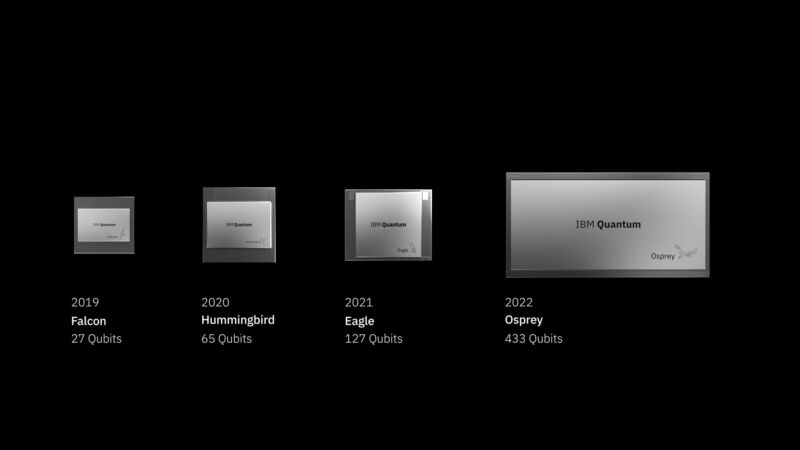IBM pushes qubit count over 400 with new processor
Ars Technica » Scientific Method 2022-11-09

Today, IBM announced the latest generation of its family of avian-themed quantum processors, the Osprey. With more than three times the qubit count of its previous-generation Eagle processor, Osprey is the first to offer more than 400 qubits, which indicates the company remains on track to release the first 1,000-qubit processor next year.
Despite the high qubit count, there's no need to rush out and re-encrypt all your sensitive data just yet. While the error rates of IBM's qubits have steadily improved, they've still not reached the point where all 433 qubits in Osprey can be used in a single algorithm without a very high probability of an error. For now, IBM is emphasizing that Osprey is an indication that the company can stick to its aggressive road map for quantum computing, and that the work needed to make it useful is in progress.
On the road
To understand IBM's announcement, it helps to understand the quantum computing market as a whole. There are now a lot of companies in the quantum computing market, from startups to large, established companies like IBM, Google, and Intel. They've bet on a variety of technologies, from trapped atoms to spare electrons to superconducting loops. Pretty much all of them agree that to reach quantum computing's full potential, we need to get to where qubit counts are in the tens of thousands, and error rates on each individual qubit are low enough that these can be linked together into a smaller number of error-correcting qubits.